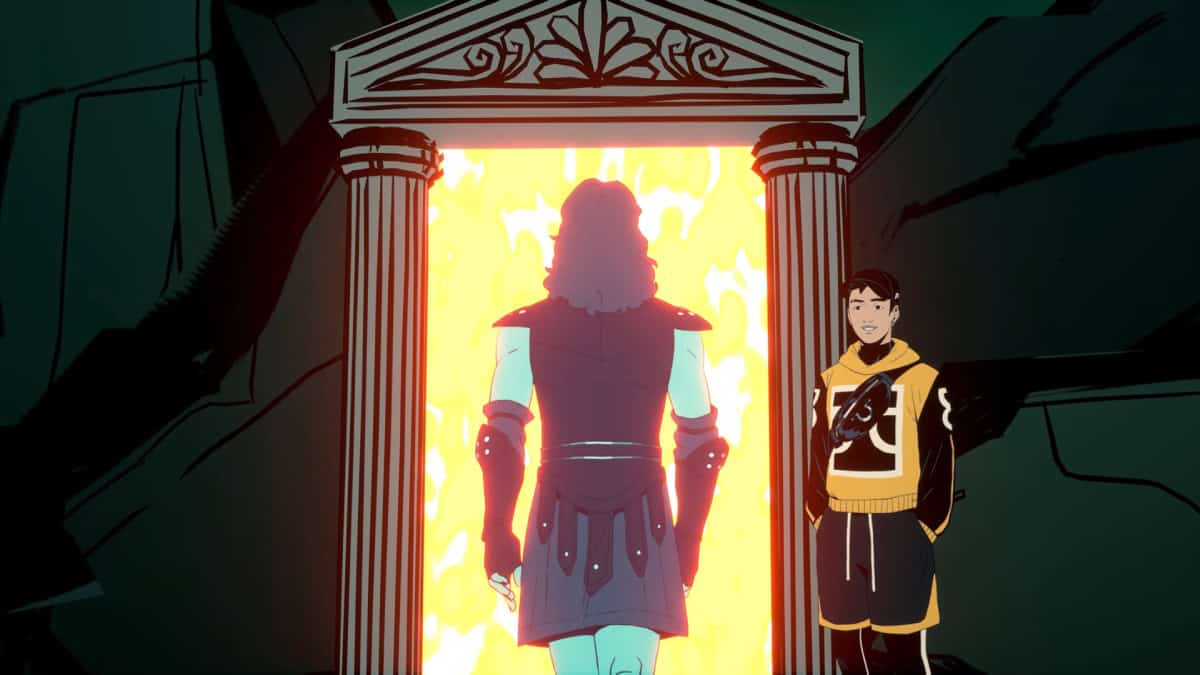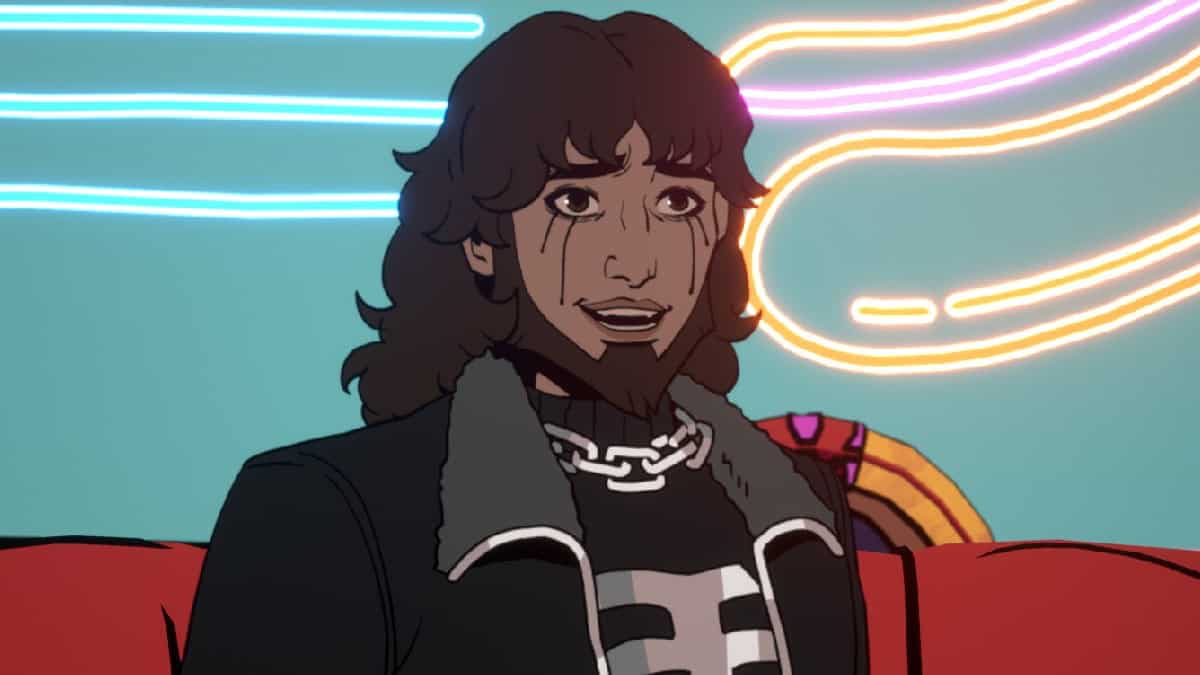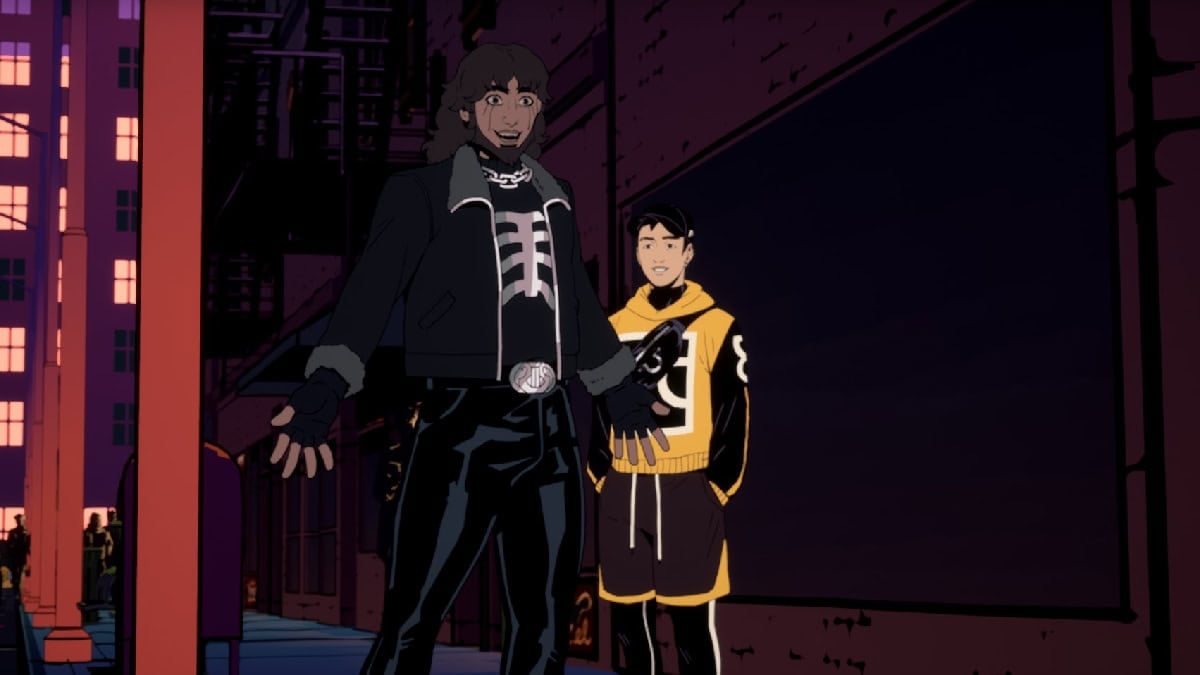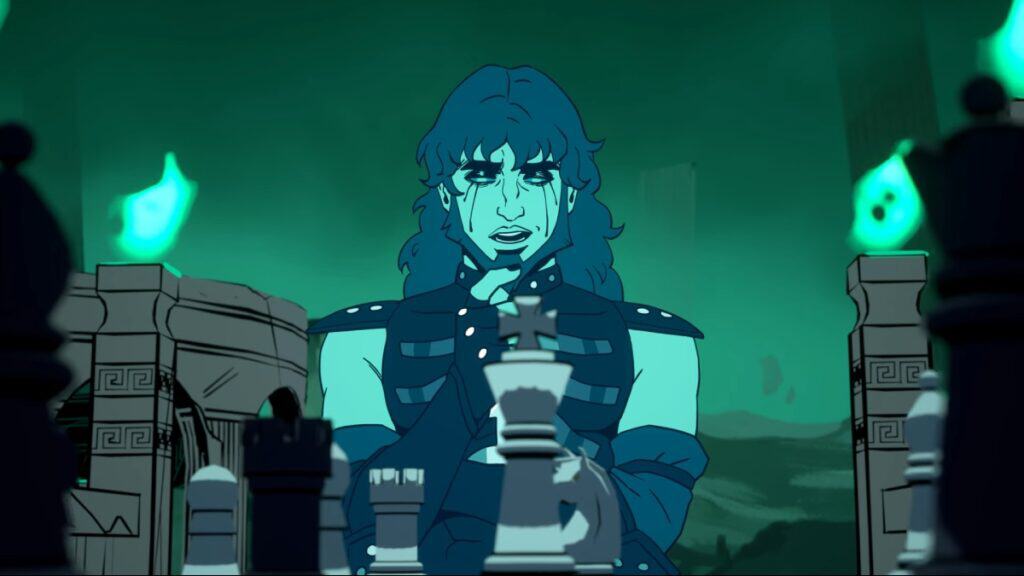Skip To...
If you were left wanting to hear more songs with a chorus of the Olympians, Stray Gods: The Roleplaying Musical returns, but it does not do it alone. Stray Gods comes loaded with inspiration with the Orpheus DLC. This new game picks up the story just a little after all the events after Grace became the last Muse. So, if you want to find out what happened to the Idols, well, Orpheus isn’t exactly someone who can answer those questions. Instead, he focuses on his own dilemmas and how to fight his inner demons.
Orpheus’ Introduction to Dating 101

Although you don’t need to play the base game to enjoy the DLCL’s new songs or story beats, I still recommend playing through Stray Gods first. It has a similar mechanic to Telltale’s The Walking Dead games, where your decisions in Stray Gods impact the story of Orpheus in some way or another. There are some references from the first game, too, so finishing the story before starting the DLC is advisable. In my case, Orpheus abandoned his throne in Hades after a confrontation with Grace. So, the poet’s end fate was to wander into the Underworld and spend most of his time playing board games with Charon.
This new passage begins through Hermes and his psychopomp powers— God stuff. Those powers make the messenger God be at the right time and place to hear Orpheus singing from the heart that he no longer knows what to do or how to go on with his life. Hermes decides to help Orpheus find his place in the modern mortal world like the other Idols. By the way, Hermes shows Orpheus that he can get out of Hades, even though he has been dead and trapped for millennia in it. This DLC focuses on Hermes guiding Orpheus to find his purpose and explore various, albeit limited, possibilities.
As Orpheus, you can rediscover love and try to give things another chance after the centuries-old loss of his beloved Eurydice. He does this with a round of speed dating or by falling in love with the first person he sees. There is also the matter of revenge that this artist never carried out against Persephone or to return to his glory days as a musician. However, what is truly artistic in this DLC is seeing the nuances of Orpheus as a mortal who became immortal in the mortal world. You experience the highs and lows that the poet lives in his journey of self-discovery.
New Songs, Yet Same Old Mechanics

The gameplay is another example of “If it ain’t broke, don’t fix it.” This DLC doesn’t provide anything new in terms of mechanics, and the choices and conversations continue in the same structure as the base game. Sadly, other aspects are lacking compared to Grace’s story. There is no map to choose the next step of the journey or the possibility of investigating people or objects. In fact, the game is more limited and linear since Hermes is mostly in charge of setting the direction and rhythm, while Orpheus just lets himself go.
The “attribute cards” allowed Grace to choose between being more daring, cunning, or charming, but they were absent in the DLC. However, Orpheus finds the options for romance in almost any dialogue with any character. Also, while I was glad to see Hermes again and excited to see if I could discover more of this God, they remain distant and oblivious to the story again, despite being an essential part of the DLC. I wanted to interact more with them or even see if they were an option for romance.
A Well-Put Audiovisual Medley

There is no other word to describe the music or visuals of Stray Gods other than an absolute masterpiece. The audio and visual elements work harmoniously in tandem, preserving the base game’s sensational experience. The music is, of course, the main focus of it all. Orpheus delivered a few more songs, and I loved how they poured the rock style of this Idol from the base game into this DLC. Adding verses to the speed dating song was hilarious as Orpheus tried not to fall apart in frustration at finding his true love. During the concert, I admit that I got a little too carried away, experimenting with wind instruments and strings, which made the performance’s “masterful ending” slightly cringeworthy. It was comically horrendous, yet I loved it.
A Short Yet Enjoyable Musical Odyssey

I enjoyed seeing familiar faces from Stray Gods and revisiting Orpheus’s story after I forced him to get up from his throne in the Underworld. I was living every song as my own, with every choice between the poet’s chorus and some other Idol as musical accompaniment. However, a big turndown is how limited and short the story is. I didn’t expect another three-act story, but I wanted to do much more since it was a play with the same set design and actors.
Orpheus needed to see more of the mortal world and interact with more characters. For Zeus, I wanted a scene of Orpheus accompanying Hermes to watch a movie or Orpheus trying to understand how to use a cell phone while Hermes explained to him as if he were a modern-day boomer. The most significant part in which the poet tries to understand the human world is during speed dating, but the other Gods are sadly left out of the cast. Still, while short, Stray God: Orpheus is an enjoyable journey that brings quality to what matters: its music. And even if it doesn’t reinvent the narrative part or RPG systems, it’s one of the most unique takes on the genre that delivers many high notes players will love.
Review code provided by Publisher.
Stray Gods: Orpheus DLC (PC Reviewed)
Stray Gods: Orpheus replicates the essential aspects of its predecessor with more impressive songs and roleplay featuring some Olympian Gods, but The Fates hold the thread of this story too tight.
Pros
- More amazing songs
- The continuation of Orpheus' story
Cons
- Less mechanics than the base game
- Short story
- Limited gameplay







